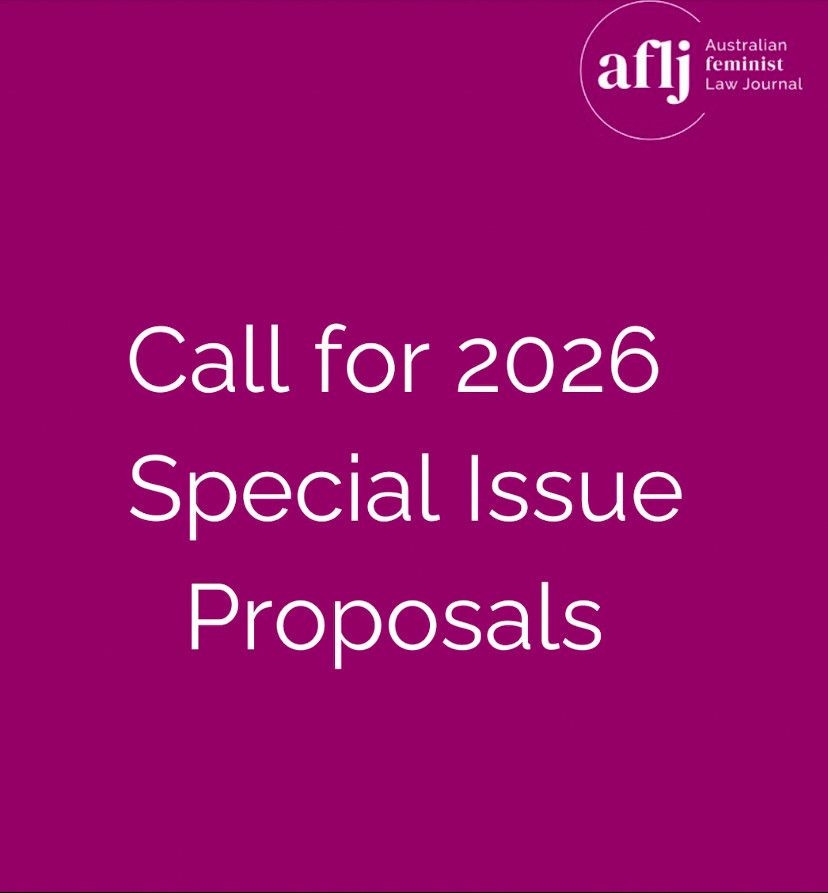Ronli Sifris
@ronlisifris.bsky.social
160 followers
100 following
7 posts
Assistant Commissioner for the Australian Law Reform Commission's inquiry into Australia's surrogacy laws. Assoc Prof, Monash University. Deputy Director, Castan Centre for Human Rights Law.
Posts
Media
Videos
Starter Packs
Ronli Sifris
@ronlisifris.bsky.social
· Mar 11

Law and Human Rights Expert Associate Professor Ronli Sifris to Join ALRC Review of Surrogacy Laws
The Australian Law Reform Commission (ALRC) has announced Associate Professor Ronli Sifris as Assistant Commissioner for its Review of Surrogacy Laws. Assistant Commissioner Sifris is an Associate Pro...
www.alrc.gov.au
Ronli Sifris
@ronlisifris.bsky.social
· Mar 11
Reposted by Ronli Sifris
Reposted by Ronli Sifris
Ronli Sifris
@ronlisifris.bsky.social
· Dec 3

NSW Health issues apology as abortion review recommends further reform, conscientious objection education
The New South Wales Health Secretary offers an apology to women who have been affected by recent abortion bans, adding that she has written to hospital executives across the state reminding them of th...
www.abc.net.au
Reposted by Ronli Sifris
Reposted by Ronli Sifris
Melissa Castan
@drmcastan.bsky.social
· Nov 29
Reposted by Ronli Sifris
Melissa Castan
@drmcastan.bsky.social
· Nov 19
Ronli Sifris
@ronlisifris.bsky.social
· Nov 24
Sifris, Ronli --- "Balancing Abolitionism and Cooperation on the World's Scale: The Case of the Bali Nine" [2007] FedLawRw 3; (2007) 35(1) Federal Law Review 81
In order to advance the 'unity of the system' of international law, it is necessary to resolve conflicts of norms and to endeavour to ensure that where tension exists, reconciliation is achieved. The commitment of states to engage in international criminal cooperation has the potential to conflict with many different human rights obligations, such as the prohibition against torture. The recent controversy relating to European states aiding the United States to affect extraordinary renditions is an example of the way in which a state's commitment to international criminal cooperation and a state's commitment to fundamental human rights may potentially conflict.[2] This article considers the potential for conflict which may emerge when a state is committed to both international criminal cooperation as well as death penalty abolition and posits the view that these obligations can be and must be reconciled. The article invokes as the focal point of discussion the cases of the Bali Nine, where Australia provided Indonesia with information pertaining to the planned trafficking of heroin from Indonesia to Australia by Australian citizens. The article considers Australia's role in facilitating the arrest of Australian citizens in Indonesia with the knowledge that this could lead to Australians facing the death penalty as a practical mechanism for analysing the way in which the international system is venturing to reconcile these obligations.
classic.austlii.edu.au






